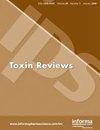Production of hyperimmune sera: a study of digestion and fractionation methodologies for the purification process of heterologous immunoglobulins
IF 2.4
4区 医学
Q2 TOXICOLOGY
引用次数: 0
Abstract
Abstract Several scientific studies to evaluate the process of digestion and fractionation of immunoglobulins have been carried out in order to improve the production of hyperimmune sera. Today, quality, safety, and production efficiency, along with the development of optimized, robust, and cost-effective processes are priorities. Thus, this work analyzed previous studies of enzymatic digestion of heterologous immunoglobulin G, as well as studies of protein fractionation with caprylic acid, to verify the experimental conditions and their impacts on production processes. The establishment of possible variables; such as concentration, pH, time, and temperature; may allow optimization of the production of hyperimmune sera. Most of the digestive processes evaluated took place at 37° C, pH 3.2, with times longer than 90 minutes, and pepsin inactivation between pH 7.0 and 7.2, while fractionation with caprylic acid used a concentration of 5%, 37° C, and pH 5.0–5.8, for 60 minutes. This work aimed to establish, the ideal conditions to be applied in the production of hyperimmune sera.高免疫血清的生产:异源免疫球蛋白纯化过程的消化和分级方法研究
摘要为了提高高免疫血清的产量,已经进行了几项科学研究来评估免疫球蛋白的消化和分级过程。如今,质量、安全和生产效率,以及开发优化、稳健和具有成本效益的流程是优先事项。因此,这项工作分析了以前对异源免疫球蛋白G的酶促消化的研究,以及用辛酸进行蛋白质分级的研究,以验证实验条件及其对生产过程的影响。建立可能的变量;例如浓度、pH、时间和温度;可以优化超免疫血清的产生。大多数评估的消化过程发生在37°C,pH 3.2,时间超过90 分钟,胃蛋白酶在pH 7.0和7.2之间失活,而用辛酸分级使用5%的浓度,37°C,pH 5.0–5.8,60 分钟本工作旨在建立用于生产超免疫血清的理想条件。
本文章由计算机程序翻译,如有差异,请以英文原文为准。
求助全文
约1分钟内获得全文
求助全文
来源期刊

Toxin Reviews
医学-毒理学
CiteScore
6.80
自引率
0.00%
发文量
36
审稿时长
>12 weeks
期刊介绍:
Toxin Reviews provides an international forum for publishing state-of-the-art reviews and guest-edited single topic special issues covering the multidisciplinary research in the area of toxins derived from animals, plants and microorganisms. Our aim is to publish reviews that are of broad interest and importance to the toxinology as well as other life science communities. Toxin Reviews aims to encourage scientists to highlight the contribution of toxins as research tools in deciphering molecular and cellular mechanisms, and as prototypes of therapeutic agents. Reviews should emphasize the role of toxins in enhancing our fundamental understanding of life sciences, protein chemistry, structural biology, pharmacology, clinical toxinology and evolution. Prominence will be given to reviews that propose new ideas or approaches and further the knowledge of toxinology.
 求助内容:
求助内容: 应助结果提醒方式:
应助结果提醒方式:


